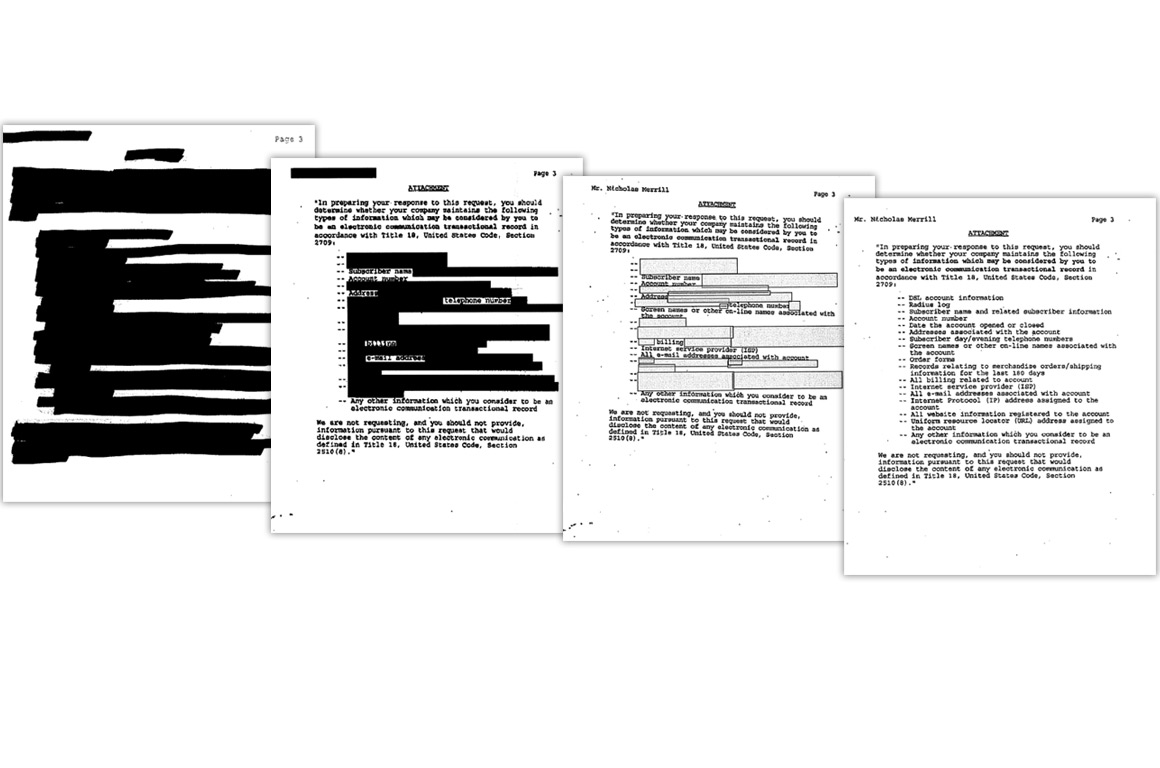Judge Revises Sealing Order in Controversial Patriot Act Challenge
ACLU and NYCLU Were Forced to Remove Text From Websites, Documents Reveal
FOR IMMEDIATE RELEASE
NEW YORK - A federal judge today revised a strict sealing order in a challenge to the Patriot Act's expanded "National Security Letter" power filed by the American Civil Liberties Union and the New York Civil Liberties Union.
The government had relied on the strict seal in the case to demand that the ACLU and NYCLU remove two paragraphs from a press release on their websites. One of those paragraphs has now been reposted to the ACLU website; it describes the briefing schedule in the case.
"We are gratified that the judge has upheld the public's right to know non-sensitive information about this lawsuit challenging the constitutionality of National Security Letters," said Ann Beeson, the Associate Legal Director of the ACLU.
"We believe the government continues to withhold information about this case that the public has a right to know," she added. "However, we are also confident that the National Security Letter provision and the gag order will ultimately be struck down as unconstitutional and that all of this information will eventually see the light of day."
Today's opinion by Judge Victor Marrero of the Southern District of New York amends an earlier sealing order in the case, which was filed under seal on April 6 and only disclosed on April 28 after intense negotiations with the government.
The court has now said that certain categories of non-sensitive information can be made public, such as scheduling matters, the ACLU's facial challenge to the law, and "any attendant discussion which is limited to purely legal issues and which does not reference any factual allegations" in the case. The opinion also establishes a procedure for making redacted versions of sealed documents available to the public as soon as possible.
The recent controversy over the seal began when the ACLU and the NYCLU reluctantly complied with the government's demand that they remove text from a news release. As redacted documents posted by the ACLU now reveal, the government contacted ACLU lawyers to say that the ACLU had violated the court's sealing order by publishing the information. While the court was resolving the issue, the ACLU and NYCLU removed two paragraphs from news releases that had been posted on their respective websites.
Following is the text from the press release that has now been restored to the ACLU and NYCLU websites: "The parties have agreed to a briefing schedule in the case. The ACLU will file a summary judgment motion on May 17, 2004; the government will respond on June 7, 2004; all briefing will be completed in July 2004. The court is likely to schedule arguments in the case in late summer 2004. The case is assigned to Judge Victor Marrero."
The lawsuit challenges the constitutionality of a Patriot Act provision that allows the Federal Bureau of Investigation to issue National Security Letters demanding sensitive customer records from businesses without judicial oversight.
The FBI can issue a National Security Letter without obtaining prior judicial approval, without demonstrating a compelling need to justify the disclosure, and without specifying any mechanism that would allow a recipient to contest the demand.
On Monday, the ACLU and NYCLU will file a summary judgment motion asking the court to declare that the National Security Letter statute is unconstitutional and block its enforcement.
Attorneys in the case are Beeson, Jameel Jaffer and Sharon McGowan of the ACLU, and Arthur Eisenberg of the New York Civil Liberties Union.
For more information on the Patriot Act and National Security Letters, including access to all documents unsealed by the court, go to /nsl
Stay Informed
Sign up to be the first to hear about how to take action.


